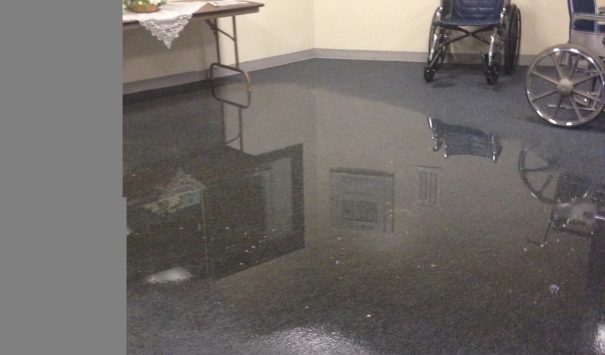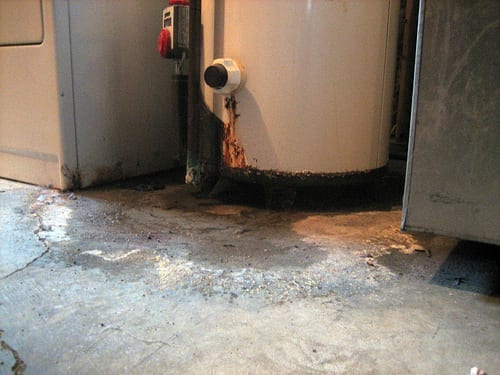Vital Measures House Owners Must Take When Dealing with Broken Heating Units
Vital Measures House Owners Must Take When Dealing with Broken Heating Units
Blog Article
How do you feel on the subject of Maintaining & Draining a Water Heater?

Whether it is located in the basement or a separate room, busted hot water heater can cause stress. A basic system holds 80 gallons, so an overnight leakage will result in a flood. This causes significant residential property damage with soaked wall surfaces as well as floors. Besides, having no hot water supply is also troublesome. If you are dealing with these concerns, make note of the following:
Call the Plumber
After doing the initial two safety and security actions, you need to call your plumber to come right now to fix a burst hot water heater. Nonetheless, remember that your device will not just collapse substantially overnight. There are usually indications that your aging water heater has debris accumulation in the interior. Keep in mind of the following:
Do not wait on significant flooding to call the plumber. By then, you will need to invest more to recover your property. Rather, as soon as you spot these indications, have actually an expert pertained to evaluate your hot water heater storage tank. Generally, hot water heater have a life-span of about 8 to 12 years. With routine assessment and also upkeep, you can lengthen its life.
Cut Off the Cold Water Supply
Cut off the storage tanks faucet water supply from the resource. This goes from your primary water line into the tank. When your tank is in good condition, the cold water quits filling out when the container is full. Considering that it is dripping, the water will certainly proceed to move. Shut the valve found at the top of the heating unit. Turn this clockwise to close it off. You must turn off that main water supply line outside your building if you can not locate it or reach it.
Shut Down Source Of Power
Before calling the plumber, shut off a gas water heater by transforming the temperature level dial. This is generally situated on top of the thermostat. Switch over off the circuit breaker if you have a version that runs on electric power. This will prevent electrocution, specifically if there is a leakage as water is a conductor. Generally, the burner shuts down when the water hits a certain temperature level. However with a damaged tank, it might malfunction. Cutting it off assures you remain risk-free.
Clean Up Property
After calling the plumber, file damage by taking notes as well as photos so you can assert your house owner's insurance. Remove any type of standing water to stop mold and mildew and also mildew growth. If you have a completely submersible water pump, make use of that to drain pipes the water.
Remember, if you notice any issues with your water heater, call the pros right now. You can not take this issue gently due to the fact that a damaged thermostat can elevate water temperature to an alarmingly high level, resulting in unintentional burns. A damaged heater pressure relief valve can also cause an explosion. For best outcomes, get an annual check so your unit gets evaluated, cleansed, drained pipes, and also re-filled, guaranteeing ideal performance.
After doing the initial 2 security steps, you should call your plumber to come right away to fix a fractured water heater. Rather, as quickly as you find these signs, have actually a specialist come to examine your water heater tank. Prior to calling the plumber, shut off a gas water heater by transforming the temperature dial. If you have a completely submersible water pump, make use of that to drain the water. Bear in mind, if you notice any kind of problems with your water heater, call the pros right away.
Is My Water Heater Broken?
The Water Heater is Old
No appliance will last forever. This includes a home’s water heater. During its lifespan, residents are going to face a situation where a new water heater installation will be necessary. The biggest problem with this is that most people are not sure when their water heater expires. Not knowing this can lead to serious risks if the unit begins to act up due to old age.
Most makes and models of water heaters will last between eight and 10 years. While 10 years is the age when water heater replacement is highly recommended, the need to replace the unit may occur before this time or after. If the unit doesn’t show any symptoms of a problem, it is a good idea to replace it at the 10-year mark (from the manufacture date).
Some of the symptoms that indicate a new unit is needed include rusting, leaks, noises, and a failure to heat up the water. Also, note that not all units have a 10-year life expectancy. The main exception to this rule is that a gas unit will last for six to eight years.
Rusty Heater Inlet Valve or Water
While steel is the strongest material on earth, it does have a weakness – rust. If corrosion occurs on a steel surface, it will begin to spread and eat through the steel in certain areas. On water tanks and pipes that are made of steel, rust is a warning sign of an impending leak.
The issue for many is trying to figure out if the rust is coming from the water heater or the pipes that lead to the faucet. If rust is seen, it is a clear indication that water heater service from the professionals is needed.
If rusty water appears out of the faucets in the bathtub or sink, it likely means a rusty water heater. If there is rust near the water inlet or the pressure relief valve, rust has likely developed inside the tank. If tap water appears rusty, it may be an issue with the pipes.
Strange Sounds from the Water Heater
Are there strange sounds coming from the tank? As a water heater gets older, rumbling noises may develop and get louder and louder as the water in the tank heats up. In homes where large amounts of hot water are used, the issue is likely going to be even more obvious when more serious issues arise. If there is a strange or loud noise coming from the unit, it is probably because of sediment buildup. A good way to remedy this problem is by flushing the heater. If this does not work, then a new unit may need to be installed.
Leaks
As a water heater gets closer to the end of its useful life, there is a higher chance there will be water around the tank. If there is water, this usually means leaks are occurring. Based on where the unit is located in the home, a leak may result in serious property damage.
Leaks are usually caused by expansions in the metal tank. The expansions occur as time passes and as the inside body of the tank is exposed to multiple heating cycles per day. When a fracture forms, the gap will be slight enough to hold the water in; however, in more serious situations, this will not be the case. If the tank is idle, the water will not leak but when the metal expands during each heating system, small amounts of water will get through the gap.

Do you really like more info about Maintaining & Draining a Water Heater? Post a remark below. We'd be interested to hear your reactions about this blog. We are looking forward that you come back again later on. Liked our posting? Please share it. Help someone else discover it. Many thanks for your time. Visit again soon.
Top service? Contact. Report this page